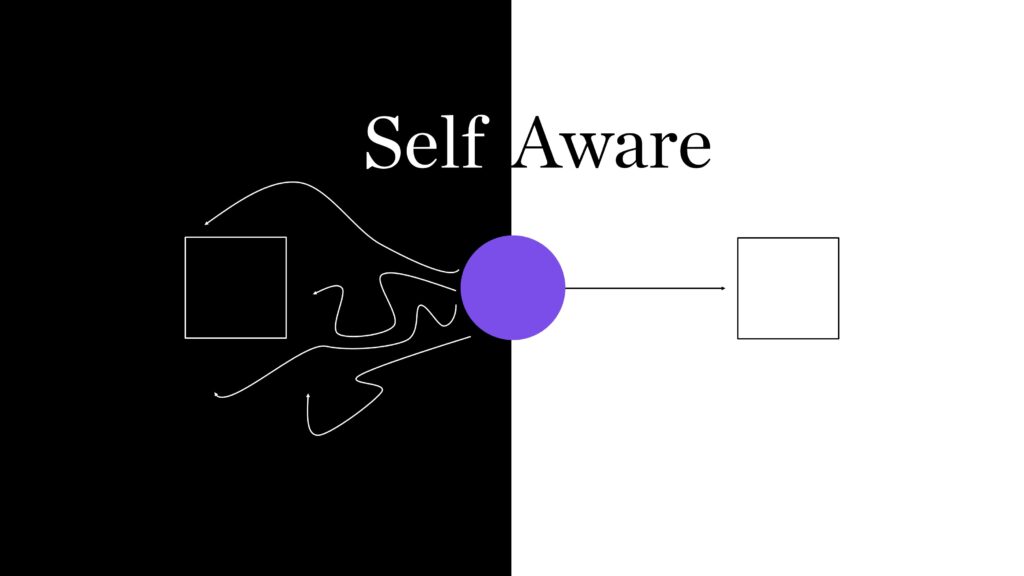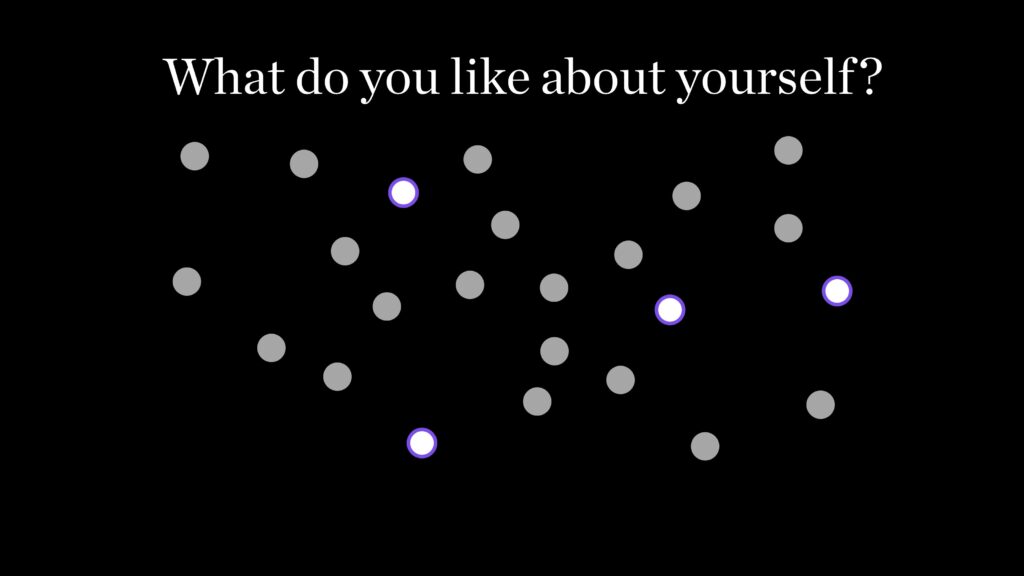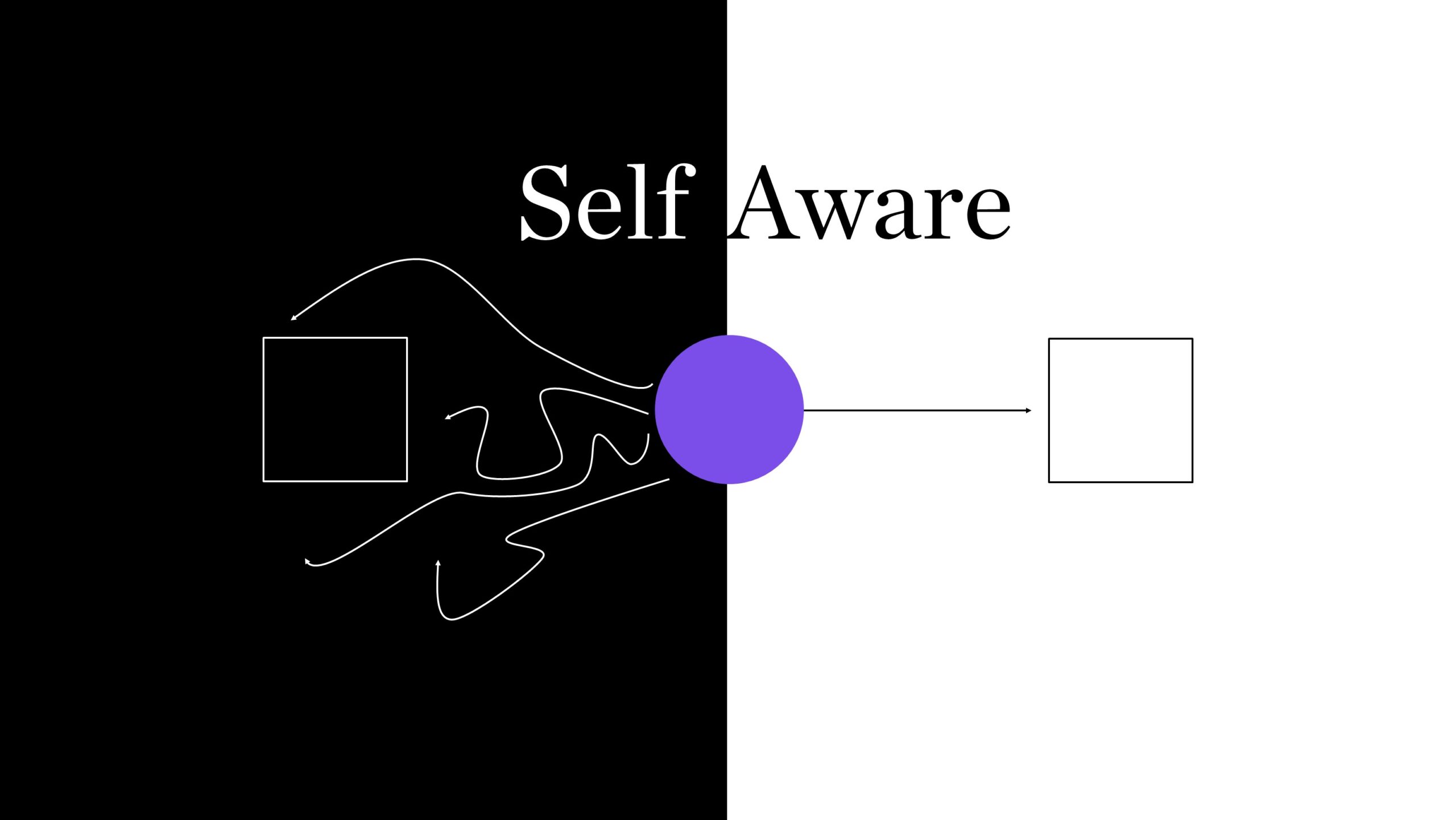Article last updated on January 17, 2022
Do you ever wonder why some people seem to get along better with other people than they do with themselves? Is it because they don’t really know themselves well enough?
Self-awareness is a key component of emotional intelligence. People who lack self-awareness tend to act impulsively or react negatively to situations without thinking through their options.

People with low levels of self awareness also tend to blame others for their problems rather than take responsibility for their actions.
Objective self-awareness can help us become more successful in our personal relationships as well as in our professional lives.
Self-awareness isn’t something that comes naturally to everyone, it is rare that someone is completely self aware. In fact, research shows that only about half of us are truly aware of ourselves and we form an illusory superiority bias.
Here are five ways to find out if you are a really self-aware person:
- You are aware of your own strengths and weaknesses.
- You can identify the things you like most and least about yourself.
- You can see how you compare to others in terms of personality traits.
- You can accurately describe what makes you happy and unhappy.
- You can easily recognize when you’re being dishonest with yourself.
If you answered “yes” to all of these questions, that’s great, but hold on for a moment.
I would recommend you read more about each of these signs because we tend to give answers before we even think about them.
This will help you understand the reasons behind your behavior and make you more aware of the way you interact with others.
Recognizing Your Strengths And Weaknesses
Do you know your own strengths and weaknesses?
How many times have you heard someone say, “That guy/girl has no sense of humor”? Or maybe you’ve said this yourself.
The reason that people often judge others based on their perceived shortcomings is that they haven’t taken time to reflect on their own behaviors.
When we evaluate another person, we look for patterns of behavior that match our expectations.
We assume that if someone acts in a certain way, then he or she must be acting in a similar manner every day.
However, there may be some exceptions. For example, a person might behave differently at work than at home.
Or perhaps he or she behaves one way around friends and family members but acts differently with colleagues.
In any case, it’s important to remember that we are not always consistent. We change from day to day and sometimes even within the same day.
So if you want to avoid judging someone else, try looking inside yourself first.
Are you aware of your strengths? Do you know what you’re good at? What are your talents?
What are your passions? How do you feel when you accomplish something?
You’ll likely notice that you have different feelings depending on whether you succeed or fail.
For example, if you’re having fun while doing something, you won’t feel as bad if you fail as you would if you were miserable while trying to achieve success.
You may also notice that you respond differently to failure than you do to success.
Do you know your weaknesses? Can you pinpoint the things you dislike about yourself?
Do you have trouble completing tasks? Do you procrastinate? Do you lose interest quickly?
Perhaps you have difficulty getting motivated. Or maybe you’re too critical of yourself.
It’s important to take note of these tendencies so that you can improve upon them.
External self-awareness can help with recognizing your strengths and weaknesses, but reflecting on your internal state is usually the most reliable way to asses yourself.
Identifying the Things You Like Most About Yourself

When was the last time you took an objective look at yourself?
Have you ever thought about why you like some things about yourself better than others?
Have you asked yourself what you like most about yourself?
Maybe you love the color of your eyes. Perhaps you appreciate your ability to laugh.
Whatever it is, write down what you like best about yourself.
Then ask yourself why you like those particular qualities.
Did you choose them because they’re attractive or because they make you unique?
If you find out that you really like something about yourself, you should celebrate!
But don’t get carried away. Remember that you still need to identify your weaknesses.
There’s nothing wrong with liking yourself. It’s just important to acknowledge that you have both positive and negative characteristics.
After all, everyone does. But you shouldn’t let those negatives define who you are.
Instead, focus on improving your strengths and eliminating your weaknesses.
Once you become more self-aware, you’ll find it easier to accept yourself for who you are. And you’ll be able to move forward with confidence instead of feeling insecure.
Self-awareness isn’t easy. But once you start paying attention to how you act and react, you’ll begin to see the truth.
You’ll recognize that you aren’t perfect and that you have flaws.
This will help you develop a realistic perspective on yourself.
Knowing Your Personality Traits Compared to Others
How well do you understand yourself compared to others in terms of personality traits?

Everyone has their own personality traits. And each of us tends to lean toward certain types of personalities.
However, it’s possible to learn more about yourself by comparing yourself to others.
To be an effective leader, you know that you must first understand yourself before you can lead others.
To start, think about which personality trait best describes you.
Maybe you’re introverted or extroverted. Maybe you’re analytical or intuitive.
Or perhaps you’re organized or spontaneous.
Now compare yourself to someone else who shares your personality type.
What do you notice?
Does this person seem more similar to you than you expected?
Are there any differences between you and this person?
Remember that personality traits are not fixed. They change over time.
So, even though you might share one trait with another person, you could end up sharing another trait with someone else later on.
As you grow older, you’ll experience changes in your personality.
Your personality traits will evolve based on your experiences.
If you can recognize your unique personality, then that is another sign that you are a self-aware person.
You Can Accurately Describe What Makes You Happy And Unhappy
When was the last time you took the time to really think about what brings you joy and what causes you stress?
It’s hard to answer these questions if you haven’t given much thought to your emotions. This is an integral part of internal self-awareness.
A self-aware person knows exactly what makes them happy and unhappy. They also know when they are stressed or upset. This sets your personal standards.
In fact, they may even be able to describe what triggers their stress. Take some time today to reflect on your happiness and unhappiness.
By learning how to accurately describe your emotional states, you’ll gain insight into your inner world.
And you’ll discover new ways to deal with stressful situations. It is rare to completely own our emotions.
But as we get better at describing them, we can take control of them.
We can choose whether to feel sad or angry. We can decide how to respond to difficult people.
And we can make choices that lead to greater satisfaction.
The ability to identify your feelings is a great indicator of being self-aware.
So don’t underestimate the importance of knowing yourself.
You’ll Easily Recognize When You’re Dishonest With Yourself
This is the biggest indicator of whether you are really self-aware.
Have you ever lied to yourself? Perhaps you tell yourself that you’re capable of doing something when you actually aren’t.
Perhaps you say you want to change when you really don’t. Or maybe you lie to yourself about why you didn’t succeed at something.
These are all signs that you lack self-awareness.
Honest feedback from other people is important too. But often, we only hear ourselves through the lens of our own perspective. So we see things differently than others do.
People who are dishonest with themselves often find it impossible to admit their mistakes. They rationalize their behavior instead of owning up to their shortcomings.
Perhaps you want to avoid facing reality. Or perhaps you just don’t like admitting that you’ve made mistakes.
Either way, lying to yourself can cause problems.
For example, if you tell yourself that you can’t exercise because you’re too tired, but you really should go for a walk anyway, you won’t follow through.
On the other hand, if you admit that you’re struggling with working out, you can start taking steps toward making healthier lifestyle choices.
You do need to acknowledge your limitations and be 100% honest with yourself. Otherwise, you’ll never improve.
If you find yourself questioning whether you are honest with yourself, then you can use these tips as helpful guidelines:
- Look at your own behavior. ” How often do you make excuses for yourself? What do you do when you make a bad decision? When you notice this happening, ask yourself why you are making such excuses.
- Consider your relationships. Do you always try to please others? Or do you sometimes let them down?
- Consider whether you are living in accordance with your values. What does your life look like?
- Pay attention to what you’re thinking. Have you been thinking about yourself more than you would like?
- Consider your beliefs. Do you believe that you are a failure? Do you think you will never amount to anything?
- Consider your actions. Do you act from your heart or from your head? How do you respond to negative feedback?
- Finally, consider your feelings. Do you experience negative emotions frequently?
Remember that honesty isn’t easy. But once you begin to question your dishonesty, you’ll see that it leads to many benefits.
Now that you understand the importance of being honest with yourself, you can see if you are a really self-aware person.
Conclusion
So, is self-awareness rare? It is, but most people would not admit that.
Most people just don’t have the emotional capacity to recognize their flaws.
I mean, after reading this article and seeing all five ways you can notice if you are a really self-aware person, I am sure you are now certain that most people are not very self-aware, but I hope you will agree that you are.
Remember, the point of this article was to help you recognize if you are a self-aware individual.


